#CONSTANTINOPLE WAS RIGHT THERE
Text
i think the most infuriating part of my tmnt 2012 rewatch is seeing all the mistakes and how the smallest of changes would do wonders for the show.
not to say that there's an overwhelming amount of issues with '12 or anything, but some things just keep bothering me. and one of them is a part of my (as well as seemingly many others') favorite arc in the show, the farmhouse arc. to be more specific, a part of leo's struggles.
pretty much everyone and their mother had made memes about ghost splinter just telling leo to 'get over' his leg injury, that it's 'all in his head'. obviously infuriating to watch, and even more bizarre, when it actually works.
and i think the intention behind this part of leo's arc was that he had healed his wounds during his coma and maybe some physical therapy (that was not shown and that's only if the writers thought of physical therapy at all) and all, or at least most, of the troubles he's facing are due to chronic phantom pain, not any physical injuries.
which isn't much better in terms of the 'just get over it, pussy' speech, but in my opinion it's still an improvement from the same speech, used in the context of ACTUAL PHYSICAL INJURY.
and it's NOT IN THE SHOW. i understand the whole "show don't tell" and "don't spell out everything for the viewer" and i'm all for it, but first, this show is notorious for not telegraphing it's intent (ekhem capritello ekhem) and misusing it's characters and second, i'm not saying there should be a scene, where leo looks into the camera like he's in the office and says "even though i'm fully healed physically, i still feel the pain in my mind and will have to overcome it to be a ninjaaa". obviously.
the perfect fix for that, in my opinion, would just be a small dialogue bit, spoken by either raph or donnie or maybe dialogue between them, sort of like
"isn't he supposed to be all healed up?"
"well, yes, but his body is not the only part of him that shredder hurt."
or something like that. it's just one of these things that don't take much to be bettered. of which there are quite plenty in '12. still a fun show, just has some flaws.
#that 'get over it' speech really made me rethink splinter as a good parent for the first time when i was a kid#this whole post was written after i heard dracula mention seeing the fall of rome during the halloween arc#like#CONSTANTINOPLE WAS RIGHT THERE#HE'S FROM ROMANIA#oh god im overthinking it but sTILL#tmnt 2012#rambling#tmnt 2k12#tmnt 2012 leo#tmnt 2012 leonardo
14 notes
·
View notes
Text

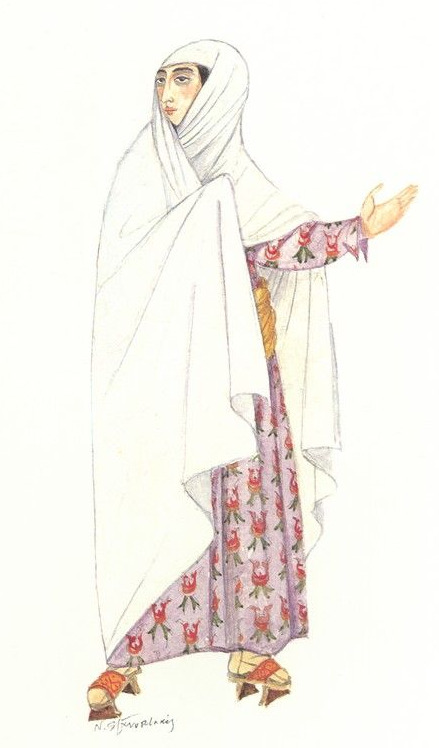
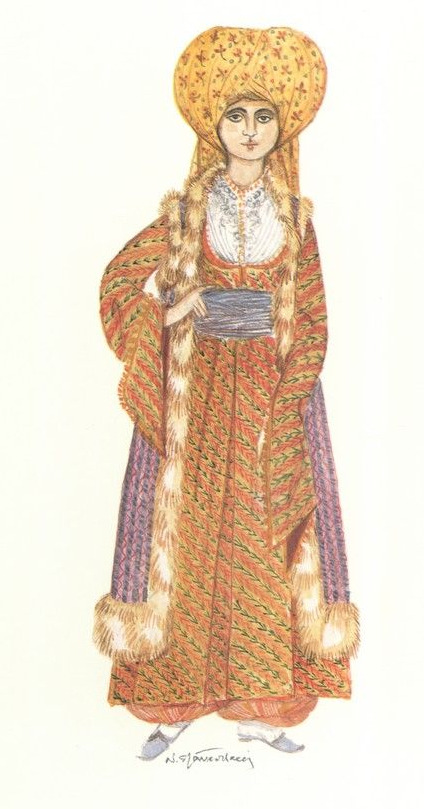

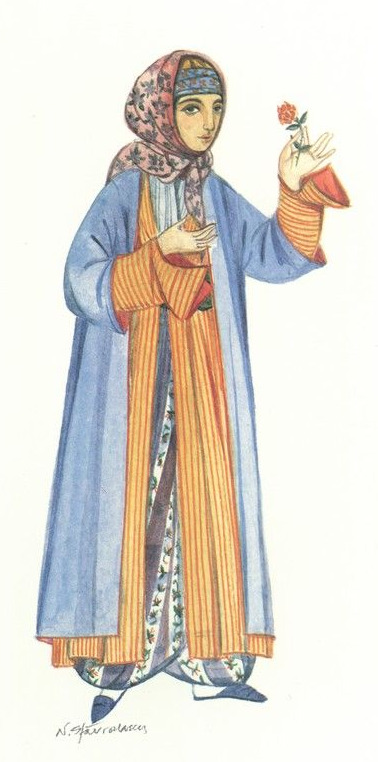
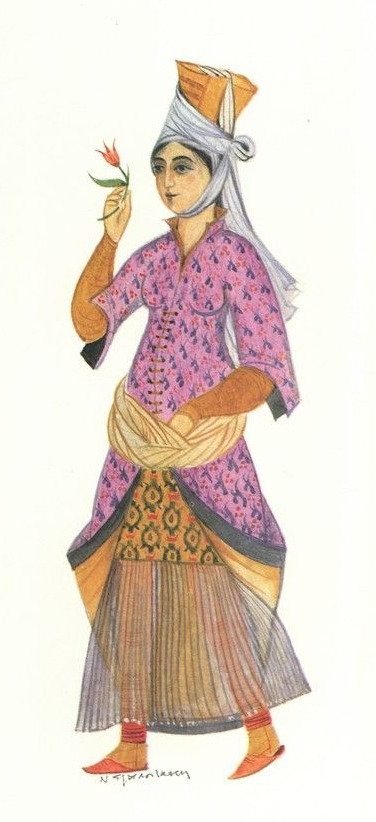
Sephardi & Romaniote Jewish Women's Clothing in the Byzantine and Ottoman Periods, illustrated by Nikos Stavroulakis
#jumblr#jewish#jewish art#jewish women#jewish history#sephardim#romaniotes#art#these are from all over. byzantium/constantinople/istanbul and smyrna/izmir and rhodes and adrianople/edirne and thessaloniki etc#shoutout to a fellow edirne girlie in the top right.#my posts
7K notes
·
View notes
Quote
Even when I was writing other beautiful
things with other beautiful words,
it lived there in between the spaces left
behind. In every margin, in every gap betwixt
words and breath between two letters’ kiss.
It was a slow thing. Slow
enough to surprise only me.
The
ghosts which gather and dance
under the moonlight
in naught but their
metaphysical skins are not creatures
I’ve buried. And yet,
all of them came for me.
I am the progenitor of their
grief, they say,
their creator and their tormentor and their
savior and the one who whispers soft
lessons into their ears.
I am the one who knocks and
the one who responds. I ask
the question before answering
it. I tell a secret and keep it
safe.
But I too am the
one who spreads it to the other children
on the playground.
I pull ponytails and feel
the pain in my scalp.
I kick a man when he’s
down and bruises appear on my stomach.
And I cannot hold séances,
nor can I turn back time. Even as
I walked backwards towards
Constantinople, I knew I
would only ever end up in
the streets of Istanbul. And
as I wandered the city,
crying for the lost
Byzantines, a million wonders
passed me by.
One Year Free, One Month Changed by Amatullah Bourdon
#my writing#poetry#um. hiiiiiiiiiii#this is my informal bipolar disorder poem...#inspired by joanie and jacqui germain#it makes sense right now but we'll see about tomorrow#(and yes it is okay to rb hehe)#also the constantinople reference has an origin in an old project. i just liked the phrase and repurposed it hehehe
228 notes
·
View notes
Text
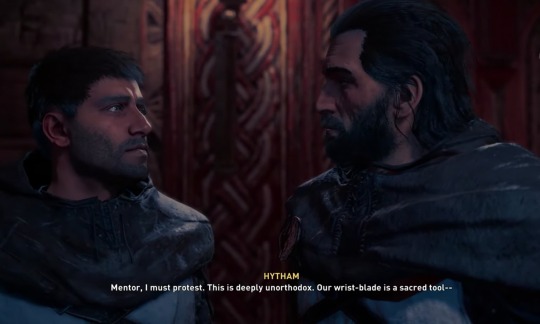
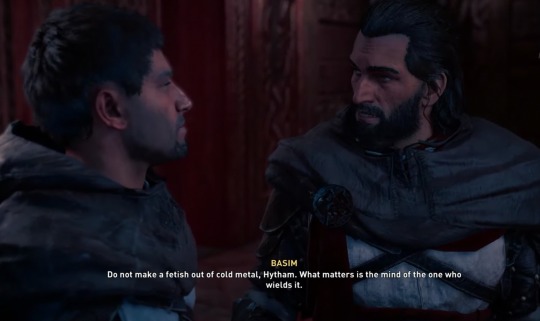
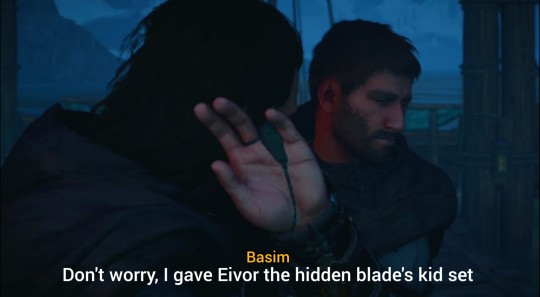

#I can't be the only one whose hidden blade sucks#so I came up with this#Because I know that somehow it is his fault#even if that blade is the one Sigurd stole from that hidden one in Constantinople in the comics#plus I really really should be studying right now and not shitposting but my life is like this#ac#assassin's creed#assassin's creed valhalla#hytham#basim ibn ishaq
24 notes
·
View notes
Text
AAAAAAAAAAAAAAAAAAAAAAAAAAAAAAAAAAAAAAAAAAAAAAAAAAAAAAAAAAAAAAAAAAAAAAAAAAAOSKAH(IKAOJPSKJAOIKAOAAOOIAAAAAAAAAAAAAAAA
#still anxious#but NOW i am being clingy and annoying to my partner who is hanging out with osmeone else right now#long distance sucks BALLS#this is UNFAIR#holy fuck brother#enchilada#constantinople#forthcoming#bro's just saying words I KNOW I KNOW I JUSHFKLAWHEKALW#i am mentally well#june shines#my juneish heart
3 notes
·
View notes
Text
hands down the most sumptuous, horrifying, delicious, heinous, divine scene in the whole series is marius' banquet slaughter. it has never left me. i will be on my deathbed and the image of marius feeding martino the blood of his dead guests right off of his fingers will still be seared into my skull. what the fuck
#tvc#amc iwtv#marius de romanus#the vampire armand#marius crashing a dinner party to argue about the fall of constantinople gives me gender euphoria i don't know how else to explain it#i wanted to be the man. i wanted to kill the man#i need everyone to understand how important everything happening in that scene is#right down to marius addressing amadeo as 'sir' im losing my MIND
5 notes
·
View notes
Text
Every time I come back to They Might be Giants after listening to other stuff feels like coming home <3
#started a video essay on their history and i was like 'damn havent listened to one of my favorite bands of all time in a bit'#and god i love them#my mom got into them in high school and raised me on them#saw them live for my 18th bday#grew up constantly listening to them they also had kids albums that happened cam out around when me and my sibling were the right age#literally one of my earliest music memories was being in kindergarten and listening to Istanbul not Constantinople on a tape player#and listening to it and then rewinding and listening again and again
2 notes
·
View notes
Text
The Eastern and Western cores had each split in two. In China, the Eastern Jin dynasty ruled the southern part of the old empire, but saw themselves as rightful heirs to the whole realm. Similarly, in the West a Byzantine Empire (so called because its capital, Constantinople, stood on the site of the earlier Greek city Byzantium) ruled the eastern part of the old Roman Empire but claimed its entirety (Figure 6.8).

"Why the West Rules – For Now: The patterns of history and what they reveal about the future" - Ian Morris
#book quotes#why the west rules – for now#ian morris#nonfiction#the east#the west#splitting#china#eastern jin dynasty#empire#rightful heir#byzantine empire#constantinople#byzantium#roman empire#division
0 notes
Text
I don’t have any social skills due to my autism but can you name every detail of the Fall of Constantinople in order like I can? Right thought not
182 notes
·
View notes
Text
Since we all know how much of a shitshow umbrella academy s4 was, let's revisit the good old days. Here's my reaction to ep1 s1, which I haven't seen in like 5 years:
We're starting off strong with the sudden pregnancy scene: this is how you get the viewer's attention
Cunty shot of Reggie walking with the seven nannies and the seven baby carriers
Viktor playing the violin while all the other characters are introduced 10/10 stunning no notes
Rehab worker saying "We'll see you soon Klaus" and him immediatly overdosing and being reanimated in the ambulance. Now we know he probably just came back to life by himself!
"You got big, Luther! What's your secret, protein shakes?"
Pogo!!! I missed you, you ape butler!
Baby Viktor leaving sandwitches for Five 🥺🥺🥺
Klaus-Allison alliance going strong since the beginning I see
"Did you see Diego?" "Yeah, with that stupid outfit" "Do you think he wears that thing in the shower?" I love siblings being siblings
Ok I had forgotten about the Allison and Luther thing. Maybe it wasn't ALL great.
"Dad, could you just stop playing tennis with Hitler for a moment and take a quick call?"
"Ok, sorry, I'm just gonna go murder mom, I'll be right back"
Klaus is seriously the best
Bank robbery flashback!!!
"Guns are for sissies! Real men throw knives!"
"That's one badass StApLeR" god I miss five's voice cracks so much
*Ben covered in blood* "Can we go home now?"
Back to the present with Klaus spilling Reggie's ashes lmao
I THINK WE'RE ALONE NOW AKA BEST DANCE SCENE IN TV SHOW HISTORY
No seriously Diego absolutely killing it, Luther doing the hand-krabs, Klaus dancing with the urne
And then boom! Five is back! Honestly iconic entrance
Also Klaus trying to stop a temporal anomaly with a fire extinguisher whyyyy lmao
Five interrupting his speech about the future to look Klaus up and down and 100% seriously say "nice dress"
Klaus responding with "ah, danke"
"That makes no sense" "well, it would if you were smarter"
Also unrelated but Viktor being such a shy wallflower in s1... he's come such a long way!!!
Luther throwing reggie's ashes on the ground "probably would have been better with some wind"
Luther and Diego beating the crap out each other. Viktor: "stop it!" Klaus: "hit him!"
Also Klaus trying to protect Five and him having none of it, too cute
"An entire square block, 42 bedrooms, 19 bathrooms, and not one single drop of coffee" "dad hated caffeine" "well he hated children too, and he had plenty of us!"
"Alright, guess I'll see you guys in another ten years, when Pogo dies" Diego please 💀💀
"You know, every time I close my eyes I see a diarrheatic hyppo about to shit on my face" this was robert sheehan improvising and honestly what the fuck how does someone even come up with that
The Istanbul was constantinople fight was honestly art. This was really the moment I knew I would love this show with all of my heart. Also masterful way to show exactly who Five is in just a couple of minutes
BEN!!! I MISS OG BEN SO MUCH!!! He was baby
Five going to Viktor when he needed help. Honestly we should have gotten more of them being besties it was so good
"The world ends in eight days, and I have no idea how to stop it" and that's how you end a first episode! I'm hooked! Except I'm not cause I know how it ends 🫠
Well this is it. This show was honestly so good in the beginning. I have no clue what happened. At least we'll always have season 1.
#tua#the umbrella academy#luther hargreeves#diego hargreeves#allison hargreeves#klaus hargreeves#number five#ben hargreeves#viktor hargreeves
86 notes
·
View notes
Text
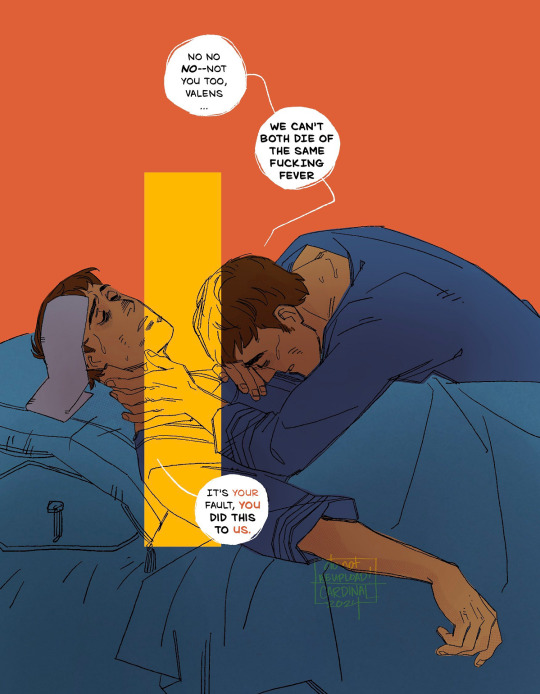

Then, on his arrival in Constantinople, after much counsel with himself, considering that he was already unequal to the amount of pressing business and believing that there was no room for delay, on the twenty-eighth of March he brought the aforesaid Valens into one of the suburbs and with the consent of all (for no one ventured to oppose) proclaimed him Augustus. Then he adorned him with the imperial insignia and put a diadem on his head, and brought him back in his own carriage, thus having indeed a lawful partner in his power, but, as the further course of our narrative will show, one who was as compliant as a subordinate.
No sooner were these arrangements perfected without disturbance than both emperors were seized with violent and lingering fevers--
AM 26.4.3-4
this was one of those illustrations that was originally supposed to be a 5 page comic until I realized I don't know anything about later roman empire architecture or visuals or art or anything, so we'll revisit that later. maybe
for right now though, these two are fascinating. we have two brothers acting as one body, even becoming ill in tandem with each other, it's giving This Throne Is Cursed. like, the last time I read about emperors coming down with life threatening illnesses, it was Caligula, and that moment in his biography marked a very specific tone shift. I spent the rest of the (first) time reading about Valens and Valentinian waiting for something comparable to Caligula's reign to happen lmao (Dio 59. 8. 1-2)
and since Caligula was already on the mind, I started thinking about Tiberius: I think he would've loved these two since he had a whole thing about twin-ification and brothers and etc etc etc. ofc, Rome is both a Mouth and a Tomb, so it's going to go badly for someone/everyone eventually, but honestly I think that Valentinian and Valens were the best we could've hoped for. like it could've been so much worse
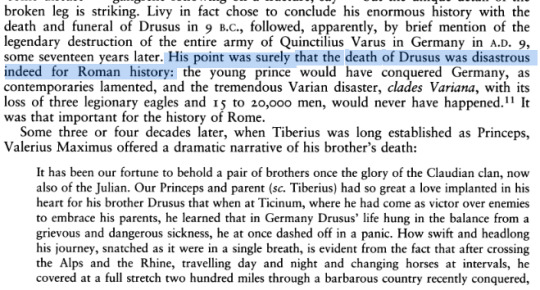









Tiberius and the Heavenly Twins, Edward Champlin
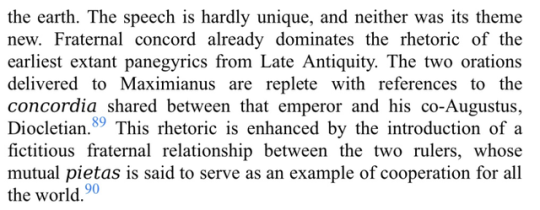
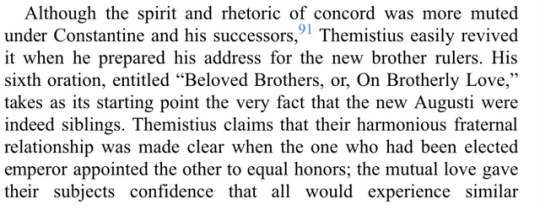

Failure of Empire: Valens and the Roman State in the Fourth Century A.D, Noel Lenski
⭐ I have a tip jar (ko-fi)!
⭐ and other places I’m at! bsky / pixiv / pillowfort /cohost / cara.app
#(drawing hearts around valens) hiiiiiiiiiiiiiiii#roman empire tag#drawing tag#every day i think about valentinian bringing his brother into this and wondering how valens felt about it#especially since the over all arc is that he's constantly just trying to tread water managing everything from six different fronts#did you ever want things to go back to how they were!!!! did you dream of simpler times!!!!!! when it was just hard work and dirt#under your nails instead of the horrible scale of empire choking you out to the very end!!!!!!!!! did you hate your brother for it#im normal about valens. btw. (<<<said by a guy who made valens his icon on his main art blog)#anyway. (claps hands together) im going to go and write about bonifacio and mabini and lucan and crassus and the pharsalia#and mabini's writings on a failed revolution and bonifacio haunting the collective memory#i gotta condense it down to a thousand words. ideally. we are rambling around at around 2k and its unwieldy#valens#valentinian I#later Roman Empire tag
159 notes
·
View notes
Text
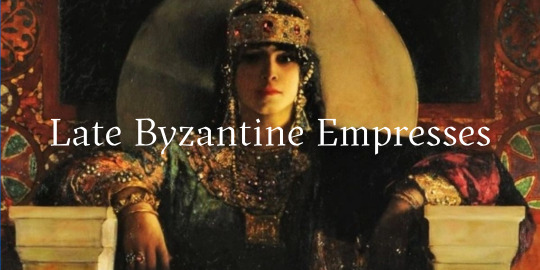
"The most notable players in Palaiologue politics were the empresses Yolanda-Irene of Montferrat and Anna of Savoy, and on the whole their record is woeful: Yolanda-Irene of Montferrat, second wife of Andronikos II, was unable to comprehend the succession rights of her eldest stepson, Michael IX, and since her husband remained obstinately unmoved by her representations she flounced off with her three sons to Thessalonika where she kept a separate court for many years from 1303 to her death in 1317. From her own domain she issued her own decrees, conducted her own foreign policy and plotted against her husband with the Serbs and Catalans: in mitigation, she had seen her five-year-old daughter married off to the middle-aged Serbian lecher Milutin, and considered that her eldest son John had been married beneath him to a Byzantine aristocrat, Irene Choumnaina. She died embittered and extremely wealthy.
When Yolanda’s grandson Andronikos III died early, leaving a nine-year old son John V and no arrangements for a regent, the empress Anna of Savoy assumed the regency. In so doing she provoked a civil war with her husband’s best friend John Kantakouzenos, and devastated the empire financially, bringing it to bankruptcy and pawning the crown jewels to Venice, as well as employing Turkish mercenaries and, it appears, offering to have her son convert to the church of Rome. Gregoras specifically blames her for the civil war, though he admits that she should not be criticised too heavily since she was a woman and a foreigner. Her mismanagement was not compensated for by her later negotiations in 1351 between John VI Kantakouzenos and her son in Thessalonika, who was planning a rebellion with the help of Stephen Dushan of Serbia. In 1351 Anna too settled in Thessalonika and reigned over it as her own portion of the empire until her death in c. 1365, even minting her own coinage.
These women were powerful and domineering ladies par excellence, but with the proviso that their political influence was virtually minimal. Despite their outspokenness and love of dominion they were not successful politicians: Anna of Savoy, the only one in whose hands government was placed, was compared to a weaver’s shuttle that ripped the purple cloth of empire. But there were of course exceptions. Civil wars ensured that not all empresses were foreigners and more than one woman of Byzantine descent reached the throne and was given quasi-imperial functions by her husband.
Theodora Doukaina Komnene Palaiologina, wife of Michael VIII, herself had imperial connections as the great-niece of John III Vatatzes, and issued acts concerning disputes over monastic properties during her husband’s reign, even addressing the emperor’s officials on occasion and confirming her husband’s decisions. Nevertheless, unlike other women of Michael’s family who went into exile over the issue, she was forced to support her husband’s policy of church union with Rome, a stance which she seems to have spent the rest of her life regretting. She was also humiliated when he wished to divorce her to marry Constance-Anna of Hohenstaufen, the widow of John III Vatatzes.
Another supportive empress consort can be seen in Irene Kantakouzene Asenina, whose martial spirit came to the fore during the civil war against Anna of Savoy and the Palaiologue ‘faction’. Irene in 1342 was put in charge of Didymoteichos by her husband John VI Kantakouzenos; she also organised the defence of Constantinople against the Genoese in April 1348 and against John Palaiologos in March 1353, being one of the very few Byzantine empresses who took command in military affairs. But like Theodora, Irene seems to have conformed to her husband’s wishes in matters of policy and agreed with his decisions concerning the exclusion of their sons from the succession and their eventual abdication in 1354.
Irene and her daughter Helena Kantakouzene, wife of John V Palaiologos, were both torn by conflicting loyalties between different family members, and Helena in particular was forced to mediate between her ineffectual husband and the ambitions of her son and grandson. She is supposed to have organised the escape of her husband and two younger sons from prison in 1379 and was promptly taken hostage with her father and two sisters by her eldest son Andronikos IV and imprisoned until 1381; her release was celebrated with popular rejoicing in the capital. According to Demetrios Kydones she was involved in political life under both her husband and son, Manuel II, but her main role was in mediating between the different members of her family.
In a final success story, the last Byzantine emperor, Constantine XI, owed his throne to his mother. The Serbian princess Helena Dragash, wife of Manuel II Palaiologos, in the last legitimating political manoeuvre by a Byzantine empress, successfully managed to keep the throne for her son Constantine and fend off the claims of his brother Demetrios. She arranged for Constantine’s proclamation as emperor in the Peloponnese and asserted her right to act as regent until his arrival in the capital from Mistra in 1449.
Despite the general lack of opportunity for them to play a role in politics, Palaiologue imperial women in the thirteenth century found outlets for their independent spirit and considerable financial resources in other ways. They were noted for their foundation or restoration of monastic establishments and for their patronage of the arts. Theodora Palaiologina restored the foundation of Constantine Lips as a convent for fifty nuns, with a small hospital for laywomen attached, as well as refounding a smaller convent of Sts Kosmas and Damian. She was also an active patron of the arts, commissioning the production of manuscripts like Theodora Raoulaina, her husband’s niece. Her typikon displays the pride she felt in her family and position, an attitude typically found amongst aristocratic women.
Clearly, like empresses prior to 1204, she had considerable wealth in her own hands both as empress and dowager. She had been granted the island of Kos as her private property by Michael, while she had also inherited land from her family and been given properties by her son Andronikos. Other women of the family also display the power of conspicuous spending: Theodora Raoulaina used her money to refound St Andrew of Crete as a convent where she pursued her scholarly interests.
Theodora Palaiologina Angelina Kantakouzene, John Kantakouzenos’s mother, was arguably the richest woman of the period and financed Andronikos III’s bid for power in the civil war against his grandfather. Irene Choumnaina Palaiologina, in name at least an empress, who had been married to Andronikos II’s son John and widowed at sixteen, used her immense wealth, against the wishes of her parents, to rebuild the convent of Philanthropes Soter, where she championed the cause of ‘orthodoxy’ against Gregory Palamas and his hesychast followers. Helena Kantakouzene, too, wife of John V, was a patron of the arts. She had been classically educated and was the benefactor of scholars, notably of Demetrios Kydones who dedicated to her a translation of one of the works of St Augustine.
The woman who actually holds power in this period, Anna of Savoy, does her sex little credit: like Yolanda she appears to have been both headstrong and greedy, and, still worse, incompetent. In contrast, empresses such as Irene Kantakouzene Asenina reflect the abilities of their predecessors: they were educated to be managers, possessed of great resources, patrons of art and monastic foundations, and, given the right circumstances, capable of significant political involvement in religious controversies and the running of the empire. Unfortunately they generally had to show their competence in opposition to official state positions. While they may have wished to emulate earlier regent empresses, they were not given the chance: the women who, proud of their class and family, played a public and influential part in the running of the empire belonged to an earlier age."
Byzantine Empresses: Women and Power in Byzantium AD 527-1204, Lynda Garland
#history#women in history#historyedit#queens#empresses#byzantine empire#byzantine history#medieval women#13th century#14th century#15th century#historyblr#historical figures#byzantine empresses#irene of montferrat#anna of savoy#helena dragas#Theodora Doukaina Komnene Palaiologina#Irene Kantakouzene Asenina#Helena Kantakouzene
60 notes
·
View notes
Note
Hi Hilary! I could use some help with something. Do you know some topics for historical tangents a history professor (Hob) could go on while talking to some students? Like some interesting discussion ideas? I was not a history major and I’m now drawing a blank 😅 I’d appreciate it greatly!
"Right, morning everyone... MORNING... yes, we all do know it is morning and I would like to remind everyone that it's not my fault we were scheduled at eight bloody AM. Consider it building character. Great. Let's get started. Can we put the phones down, please. In my day we didn't even have phones. No really. We didn't. Really didn't.
Anyway, so where were we? Ah, yes. End of the Western Roman Empire circa 476 CE, which stands for the secular Common Era, which historians now generally use instead of the Christian A.D. Anno Domini, which trust me, they used when I was born, because I am very old. Ah, you're laughing again, because you think I'm joking. Which, er, I definitely am. Anyway, the so-called collapse of the Roman Empire is one of the most mythologized events in the Western historical canon, and there are accordingly a lot of misperceptions about what happened and how. As we covered in the last class -- well, can anyone tell me what we covered last class?
Anyone?
Anyone?
Come on, one of you, just raise your hands. I don't bite.
Fine, all right, I'll do it myself. Again. Last class, we covered the eventful fourth century in Roman history, where the empire split into western and eastern halves, eastern Emperor Constantine converted to Christianity, and established his capital in Constantinople, which would later get the works from the Turks and become Istanbul. The western capital moved to Ravenna in 402, and it had been in Milan before that, not Rome. No longer the center of power as it had been for many centuries beforehand under both the empire and the republic, Rome was infamously sacked in 410 by the Visigoths under King Alaric I. The Supergoths. The Ubergoths. The Verygoths. The Turbogoths. All right, I'll stop. The Visigoths had formerly been a Roman client kingdom in the south of Gaul, which is the modern country of -- anyone?
Anyone? Anyone? Oh come on.
Yes, thank you Sarah, it was in fact France. See everyone? Not that hard. Now that we're up to speed, right, the so-called End of Rome in 476, when the last Western emperor, Romulus Augustulus, was deposed by Odoacer, general of the Ostrogoths. Not the Visigoths. Definitely different thing here. The Alsogoths. The Othergoths. The Ohgodthosegoths. I'm sorry, I'm sorry. I swear I will actually stop. But the common narrative from then is that Rome just bloody disappeared altogether, the Dark Ages started, it was grim and miserable and murdery all the time, everyone forgot how to do scholarship or art or religion or anything else, and then miraculously a thousand years later, woo, the Renaissance! Everyone sorted their heads from their arses and could do maths again! I'm sorry about saying arses. Please don't report me to HR, they've had enough of me already. Anyway, this argument, despite its long-time supremacy in the Western historiographical canon and Western popular culture, doesn't make sense on any number of levels. And that is because? Can anyone give me just one reason to start with?
Anyone?
Anyone?
Sarah again, yes, thank you. I appreciate you greatly, Sarah. Yes, for one thing, the Eastern Roman Empire still bloody existed! It was literally that meme where we're announcing that Rome is dead, Constantinople wants us to stop telling everyone that they're dead, and we sigh that sometimes we can still hear their voice. Yes, I know what a meme is, don't look so surprised. The city of Constantinople became the center of Roman culture and power, though we call it the Byzantine empire to distinguish it from the pre-476 Roman empire. It used Greek instead of Latin as its primary culture and language, it was Orthodox Christian instead of Catholic Christian, and while it was no longer the multinational power player that its predecessor had been, it still produced some heavy hitters. Such as Emperor Justinian in the sixth century, who actually, albeit briefly, reconquered the territories of former Rome in the west, and was married to the very fascinating Empress Theodora. We'll have to get back to her, but anyway, in the territories of Former Rome, such as modern-day Spain, France, and Germany, there were still client kingdoms who were directly descended from Rome and who premised their new independence on their Roman inheritance. The Visigoths -- yes, them again -- in Spain, the Merovingians and the Franks in France, the Angles, Saxons, and Jutes in Germany, and other. So tell me, can we really say that Rome collapsed, exactly, and/or disappeared, instead of just dissipated and re-formed? We still had Latin as the language of state administration, the Roman Catholic Church as the supreme religious and cultural arbiter, and other major innovations that would last through the Middle Ages. Where does this whole Dark Ages thing come from?
Anyone?
Anyone aside from Sarah?
Oh, God's wounds. All right then. The idea that Rome disappeared overnight and took everything good with it is a projection, a fiction, popularized by proto-Renaissance and Renaissance writers who wanted to legitimize their look back into the past. We're getting ahead of ourselves, but the idea of the Dark Ages as this backward slovenly time of idiocy and misery -- it just gets me very worked up, all right?! Yes, written texts and certain other traditional markers of historic narrative became much scarcer than before, and we don't know as much about it as we do the more meticulously documented societies on either side, but it's only dark because we've decided that Rome, the brutal excessively slave-owning militaristic expansionist violent empire par excellence, was the marker of all culture and the peak of Western civilization for all time and nobody else could ever come close! This is how we get bloody Game of Thrones insisting that the medieval era was always filthy and dark and full of rape and violence and morally awful people -- so tell me, George, which part of your fantasy novel, the dragons or the ice zombies, were we expected to read as actual literal truth? It's just because we want to protect the idea of ourselves as so much better than people in the past, and the past itself as full of terrible violence that is somehow worse and more primitive than our violence, and that surely we could never do that because we're so much better! Which is total bullshit! Bullshit!
...yes. Thank you. Right. I'm fine. I'm absolutely fine, I apologize for that. Just a bit of a trigger for me. We'll get back to the lesson now, yes. I'm warning you, though. If you use Dark Ages uncritically in your essay, I am knocking you down a full grade. No matter what."
#acedragontype#ask#history#hob gadling#you're welcome to use all/parts of that as you wish XD#ahem#or: how the fall of the western roman empire gets Hob to blow a gasket about game of thrones
89 notes
·
View notes
Photo
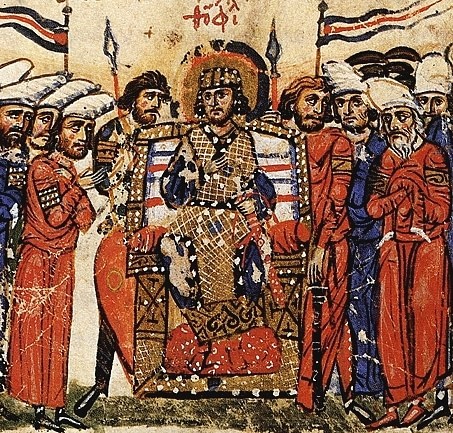
Theophilos
Theophilos was emperor of the Byzantine Empire from 829 to 842 CE. He was the second ruler of the Amorion dynasty founded by his father Michael II. Popular during his reign and responsible for a lavish rebuilding of Constantinople's palaces and fortifications, Theophilos is chiefly remembered today for a major defeat by the Arab Caliphate in 838 CE and as the last emperor who supported the policy of iconoclasm, that is the destruction of icons and their veneration being treated as heresy.
Succession & Popularity
Theophilos was from Amorion, the city in Phrygia which gave its name to the dynasty begun by his father Michael II (r. 820-829 CE). Michael's reign, tarnished right from the beginning by his brutal murder of his predecessor Leo V (r. 813-820 CE), continued its downward spiral with a serious revolt led by Thomas the Slav and significant defeats at the hands of the Arabs in Sicily and Crete.
Inheriting the throne in 829 CE aged 25, Theophilos was seen as a new hope for the empire to get back on its feet again. A return to former glories was not to be but at least Theophilos was popular because of his exuberant personality, even participating once in a chariot race in the Hippodrome of Constantinople (which he won, of course). The emperor also enjoyed a reputation as a lover of learning and justice, especially when he introduced the tradition of the emperor riding to church on Fridays and permitting any commoner to throw questions of justice or appeals his way. The historian J. Herrin recounts one such episode:
On one of the occasions a widow complained to Theophilos that she had been defrauded of a horse by the city eparch. Indeed, she claimed it was the vey horse he was riding! He ordered an investigation and discovered that her story was correct: the eparch had taken her horse and given it to the emperor. Theophilos immediately returned the horse to its rightful owner and had the very high-ranking official punished. (75)
Another eccentricity of the emperor was the habit of walking about the streets of his capital in disguise asking the people what they thought of the problems of the day and checking if the merchants were selling their goods at fair prices. Theophilos' reputation for learning stemmed not only from his own education but his endorsement of everyone else's - he increased the faculties of the university at the capital, increased the number of scriptoria where manuscripts were duplicated, and ensured that teachers were paid by the state.
Continue reading...
41 notes
·
View notes
Text
<<Your Excellency, Mr. Minister,
At this moment, as discussions are underway regarding the deportation of Armenians, I notice that there is a tendency to primarily attribute the blame to the governors-general and chiefs.
I have the honor to bring to Your Excellency's attention the atrocities committed in the name of science...
In December 1915, in Yerznka, under the orders of Tevfik Salim, the chief physician of the 3rd Army Corps, the contaminated blood taken from patients with spotted typhus was used as a vaccine on innocent Armenians condemned to exile without "activation." Such experiments are typically conducted on specific laboratory animals.
As a consequence of those actions, many of the individuals subjected to the experiment became ill and died. Prior to the vaccination, they were deceived, being told that the vaccinations were administered as a preventive measure against typhus.
The organizer of these experiments, Hamdi Suad, a professor of pathological anatomy at the Ottoman Medical University, published the results of his research in the pages of the "Medical-Military Newspaper of Constantinople," announcing that they were applied to those sentenced to death. However, I, your humble servant, witnessed everything and can attest that the subjects of the professor's deadly experiments had no other crime than being Armenian. These facts can be corroborated by Dr. Refet Bey, the chief physician of Yerznka Central Hospital, two Armenian doctors who worked with him, as well as Dr. Selaheddin Bey, the chief physician of the Yerznka Red Cross. Therefore, I, your humble servant, declare that in addition to political crimes, scientific crimes were also committed, about which I am prepared to provide full explanations.>>
Published in the "Türkçe İstanbul" newspaper on December 23, 1918, the author of the letter is the Turkish doctor-surgeon Haydar Jemal; let's not forget this name. He addressed the letter to the Ministry of Internal Affairs of Turkey.
In the issue of the same newspaper on December 24, 1918, that is, the following day, another Turkish doctor, Selaheddin, wrote the following (let's remember him with kind words):
<<Yesterday, I was cited as a direct witness of several events in the open letter of surgeon Haydar Jemal addressed to the Ministry of Internal Affairs. Being aware of what transpired in Yerznka Central Hospital, I consider it a matter of conscience to elucidate this matter.
In 1915, numerous Armenians who struggled to conceal themselves in Yerznka were chosen and treated as experimental subjects in the city's central hospital, subjected to microbiological experiments typically conducted on guinea pigs and rabbits.
This is how numerous Armenians perished...>>
Here is also a third letter written by the same doctor, Selaheddin, but printed in another newspaper, "Alemdar", on January 8, 1919. Let's reflect on his name once more, with kindness in our hearts.
<<If we acknowledge that the government of the "Union and Progress" (let's also include Germany) never valued conscience, morality, honor, and all sacred values, one can easily grasp the guiding principle that led to inflicting so much suffering on Armenians. At that time, no one demanded accountability for the atrocities committed, and many believed that all of it would go unpunished.
It was this mindset that led to such experiments with the spotted typhus vaccine being conducted in Yerznka... We possess ample evidence to substantiate the accusations we've made. It's noteworthy that despite the numerous speeches delivered, I refrained from publishing anything on this matter, while uninformed doctors surfaced in the press to deny rightful accusations. This circumstance compelled me to take up the pen. It's important to note that these individuals, who seek attention, are pandering to the crowd and resorting to sensational measures.
If informed and authoritative figures take charge of this matter, justice will prevail. And in this case, there are also culprits involved in matters of deportation, pogroms, and plunder. Our doctors need not worry. The perpetrators have been identified.
If there are those who wish to shield criminals, let them await the return of the government of the "Union and Progress" party.
The truth will be established not through the publication of newspaper articles, but in the courtroom.>>
"A Shirt Made of Fire", Vardges Petrosyan (translated by metamorphesque)
All the names mentioned in the translated section are of real people. Similarly, the events described are based on real occurrences.
#history#quotes#literature#translated literature#armenian history#armenian genocide#armenian literature#vardges petrosyan#a shirt made of fire#my translations#april 24th
99 notes
·
View notes
Text
You know what I'd like? I'd like a Chinese fantasy show - standard historical fantasy sort of thing - about a group of martial artists/cultivators being sent on a journey to the utter West. Following some sort of prophecy or something.
Of they go, fast forward, they get as far as Constantinople at the height of its power (history? accuracy? bah!), and our intrepid group of cultivators run afoul of a group of Varangians (surprise co-production with Scandinavia y/y?). Not as in sworn enemies, just - they keep accidentally crossing paths in unfortunate ways, keep having cultural misunderstandings, and occasionally end up hanging out just because.
Both groups are hanging out at the same inn - and either somebody's singing a mournful song of home, prompting questions of "where did you hear our prophecy?", or somebody's reciting the prophecy, prompting "when did you ever visit Iceland?"
So, yeah, long story short the Varangians - who were about to head home anyway - agree to act as escorts/guides to our intrepid cultivators, who for mystical reasons need to get to Hekla.
Off the show goes, along the rivers through Rus to Scandinavia and then further North, beneath the Northern Lights to Iceland.
Of course, this is a artistic license fantasy show - so our Varangian/Norse friends? Turn out to have their own magic powers. Saga style magic powers. Maybe somebody gets replaced by a bear whenever he falls asleep. Maybe somebody's mother was a troll. That sort. And the Northern Europe of this show is definitely fantastic - there's probably a sea serpent somewhere.
They get to Iceland, they do whatever needs doing - turns out, our intrepid cultivators now need to rush home to finish the magic whatever back in China.
And, of course, now they and the Norse have bonded, especially one of the cultivators and one of the Norse (handsome fellows, naturally), and so of course their escort have to go escort them right back (besides, if there's really a city more glorious than Miklagard, they need to go see for themselves).
So, back to fantasy China we go...
675 notes
·
View notes